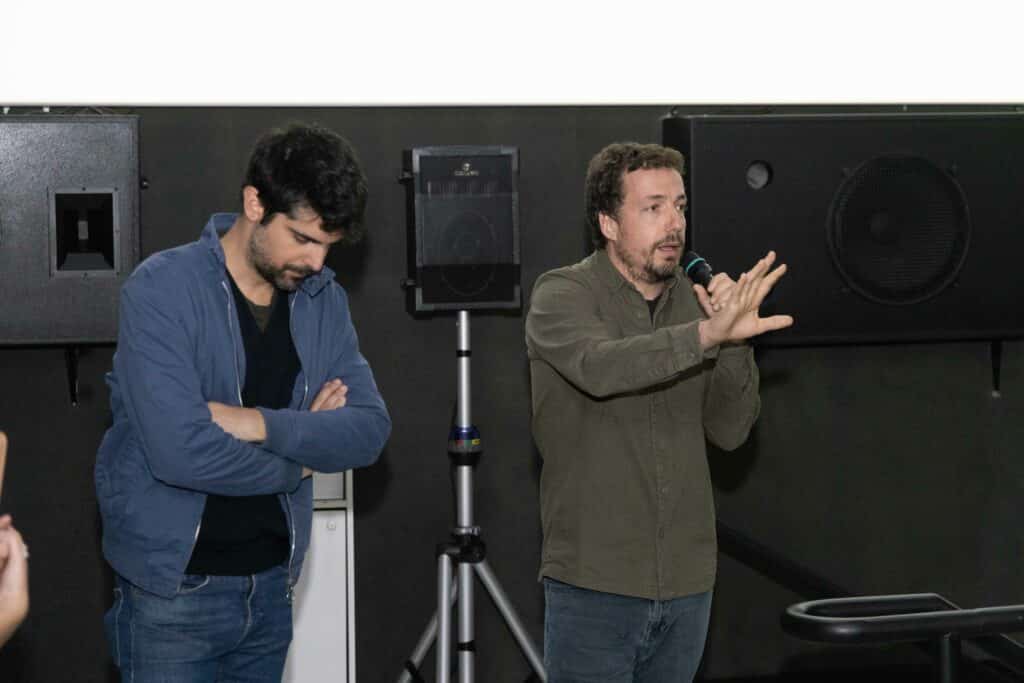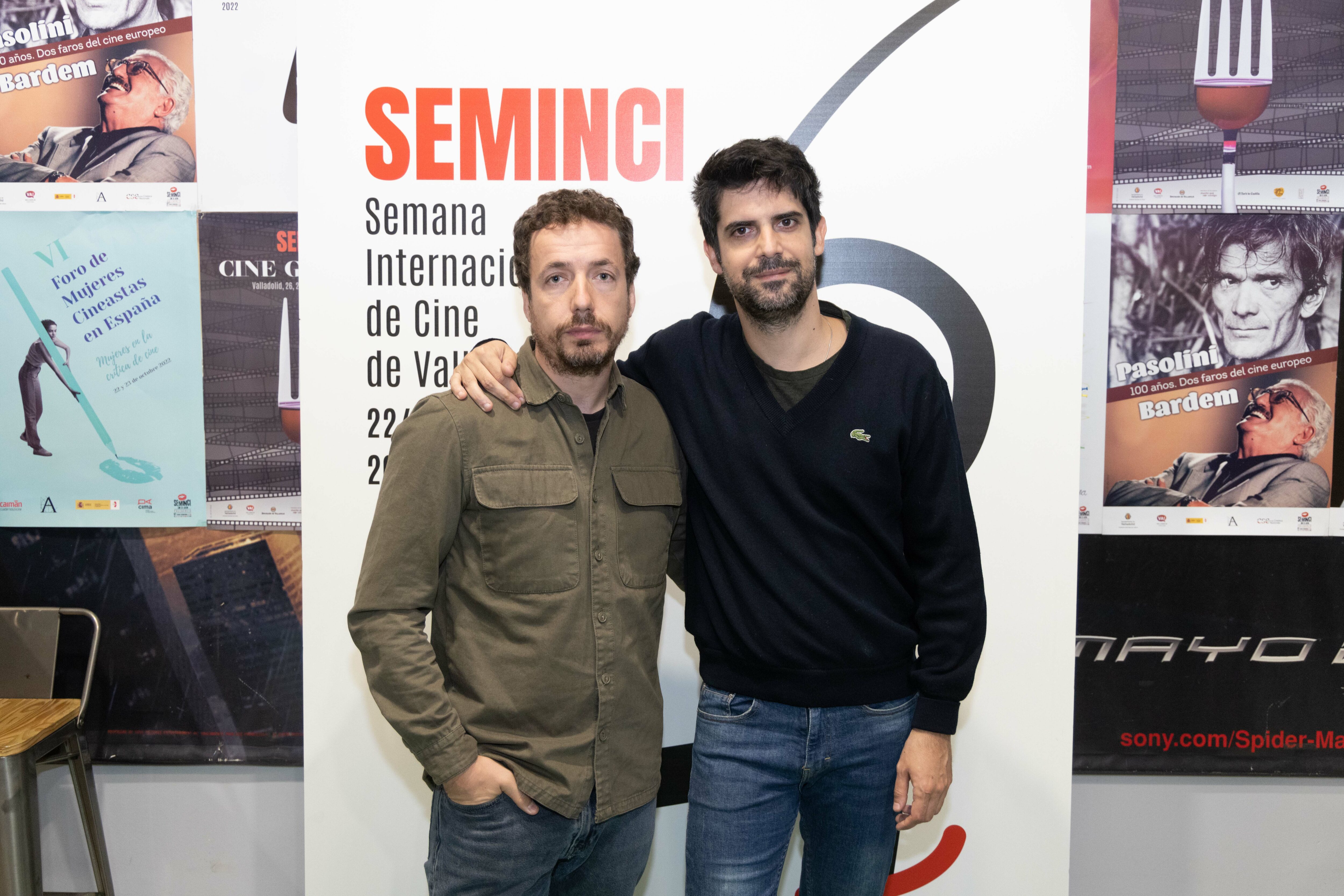This Sunday, 23 October, the Spanish Cinema section has programmed the feature film Tenéis que venir a verla, directed by Jonás Trueba, a screening attended by two of its protagonists: Vito Sanz, who plays Daniel, and Francesco Carril, who plays Guillermo. Both agreed that the film “has something latent” and defined it as “a feeling of getting together with friends and telling how we came out of a complex world situation such as the pandemic”.
The story, starring Itsaso Arana, Irene Escolar, Vito Sanz and Francesco Carril, is about Elena and Dani, a couple in their thirties who are having dinner with another couple of friends of the same age, Susana and Guillermo, and tell them about the great advantages of the new house they have just moved into, on the outskirts of the city and close to the countryside. Together, they listen to music, talk, read, eat, walk, play ping-pong… It may not seem much for a film, that’s why you have to come and see it.

Sanz and Carril have delved into the apparent simplicity of the story told in the film and define the filming and acting process as “special”. “Jonás -they add- sent us a Word explaining what he wanted to do, without a script, it was what he felt”. Specifically, Francesco Carril recalled the difficulty of playing his character because “he was at the opposite point of how I felt at the time”, while Vito Sanz emphasised
the “beauty of filming with the vertigo of not having a script and guidelines as there usually are”.
The two actors also reflected on the way in which love and friendship are portrayed on the big screen and how Tenéis que venir a verla tells “the midpoint of a relationship, when normally we always see the beginning or the end. In everyday life you don’t recite poems to your partner and nothing happens”, explained Carril. In addition, Sanz declared that “after playing a character, something of that character stays with you. Artists in general are left with a positive feeling, something expressive that saves you if you have to play a difficult character”.
